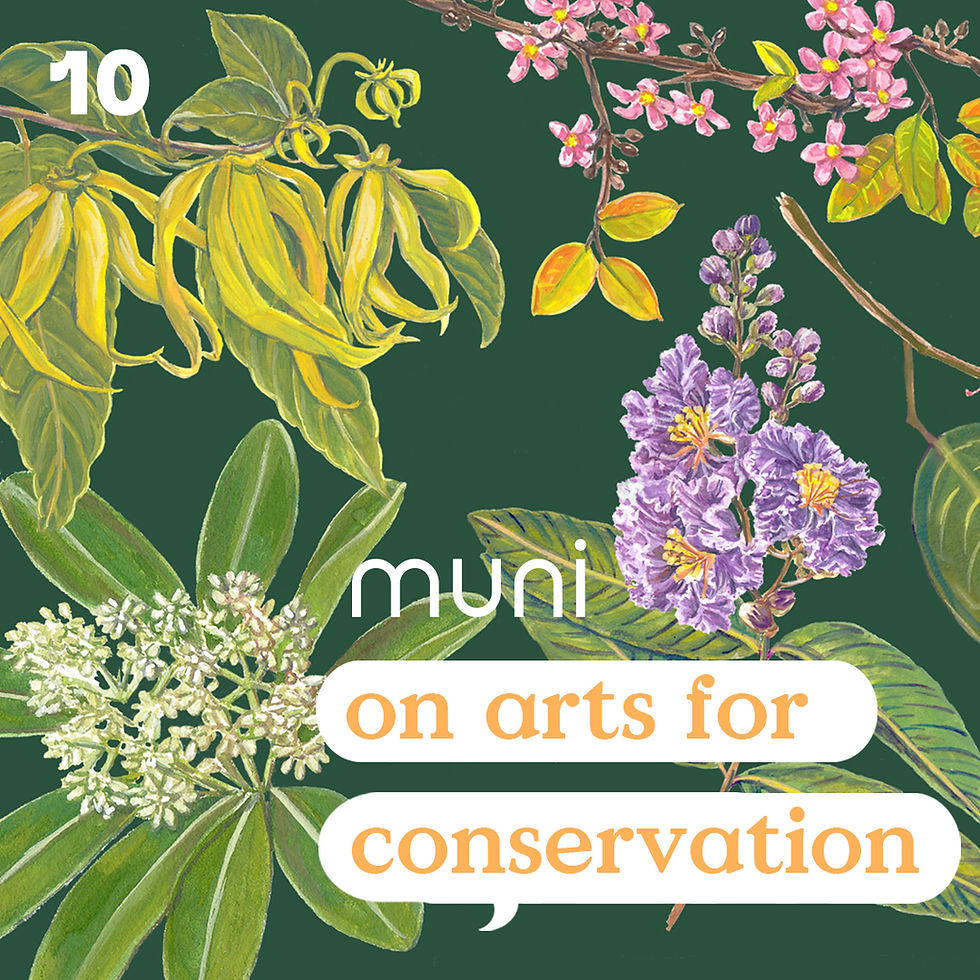Reimagining Local Fashion at MUNI Market 2017
- Team Muni

- Mar 25, 2017
- 2 min read
#MUNIonThis: According to the documentary True Cost, the fashion industry is the world’s second-largest polluter — right behind the oil industry, and 25% of chemicals produced worldwide are used for textiles, and the industry is often noted as the 2nd largest polluter of clean water – after agriculture,” according to the Danish Fashion Institute.
Furthermore, according to the EPA, with much credit to fast fashion brands, Americans discard roughly 13 million tons of textiles a year, with only 15% of that reclaimed for recycling. This means that more than 11 million tons of textiles are dumped into landfills across the country each year. Once those textiles are in landfills, they decompose and release methane. Moreover, dyes and other chemicals can leach into the soil, contaminating surface and groundwater, further harming human and wildlife.
How can contribute to reducing this mindless cycle of consumption, which is fueled by a culture created by fast fashion?
Local, fair trade, and sustainable fashion brands are emerging on the scene waving bright and colorful flags with pride. Some of these brands use natural fibres, or natural dyes, or exist to preserve handicraft traditions passed on from one generation to another. Others make the most of upcycled materials or pieces, and support the livelihood of a community. Though it may be what is “trendy” right now, we trust that this emphasis on quality, sustainability and handicraft preservation is one thing that consumers will care to keep demanding for.
Here are some brands you can check out at MUNI Market 2017:
Check out these brands and other healthy, local or eco-friendly food, home and lifestyle products at MUNI Market 2017 on April 8-9, 11AM-9PM at Capital Commons Park in Pasig.
But going just beyond consumption of products, more essential to an eco-ethical closet is the consumption of knowledge and stories from advocates of this way of living at the MUNI Meetup on Reimagining Local Fashion as part of the learning events at MUNI Market 2017.
Understanding The Impact of What We Buy (or Don’t Buy)
“Sustaining and promoting our intangible heritage is important because it is the root of our being, we cannot ‘create’ without this integral part of ourselves,” shared Charisse Aquino-Tugade of Manila Collectible.
Tal De Guzman of Risque Designs also says, “I know we are coming to a world that is more globalized, more lines are being dissolved, hence our identity as a people must be stronger. We must be able to move with the times and innovate our products to compete with the global market, without forgetting our roots. Tell stories. Tell people about other brands. Support others rather than pulling them down. The entrepreneurial and fashion worlds are not that big, we should do our best to help each other.”
When we really care to understand the products we buy and how they’re made, we buy less, because we buy better quality products, and make them last.
“Repair something rather than buying new, buy something second hand, or go without a new pair of shoes if you really don’t need them. Anyone can take a step like this regardless of their personal style or budget!” shares Hannah Theisen of Fashion Revolution and A Beautiful Refuge.
“Fashion is such a fast moving industry, where trends and styles are within arm’s reach. However, we do not realize the impact of fast fashion and how this is something we can control ourselves. We can easily do this by being more aware of what we purchase: what material it’s made of, where it’s from, how it’s made,” adds Kylie Misa, co-founder of WVN Home Textiles, and moderator of the MUNI Meetup on Reimagining Local Fashion on April 8, 11am-12:30pm at MUNI Market 2017.
Register for a slot of the meetup here.







Comments